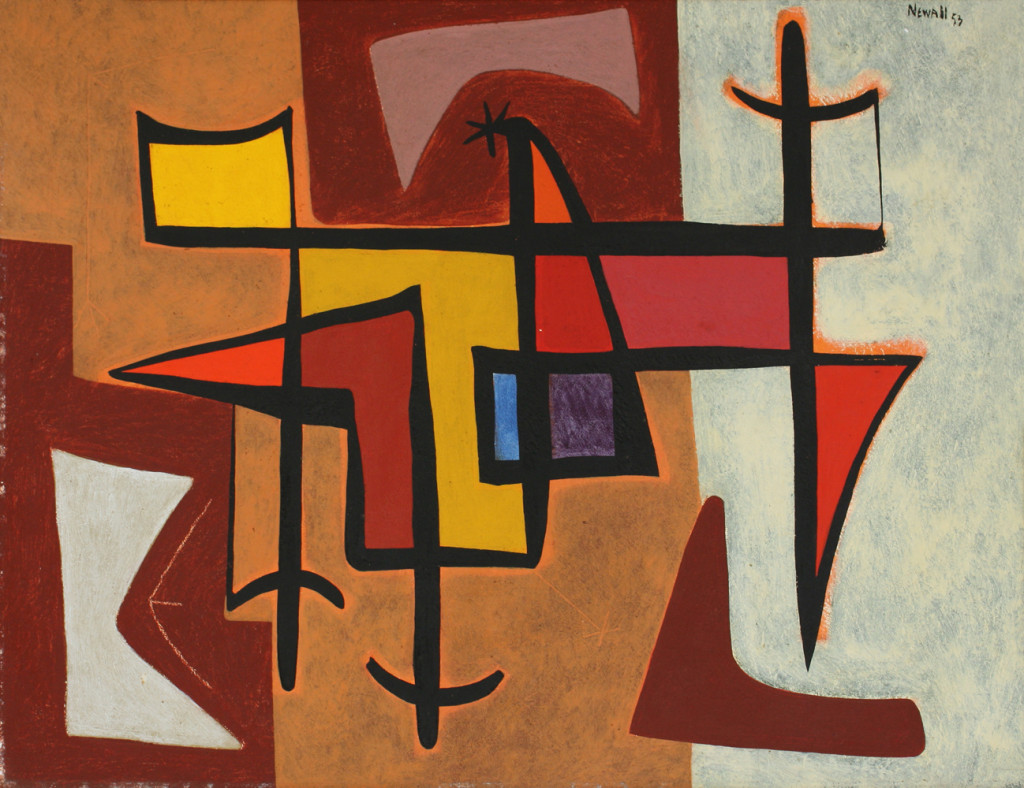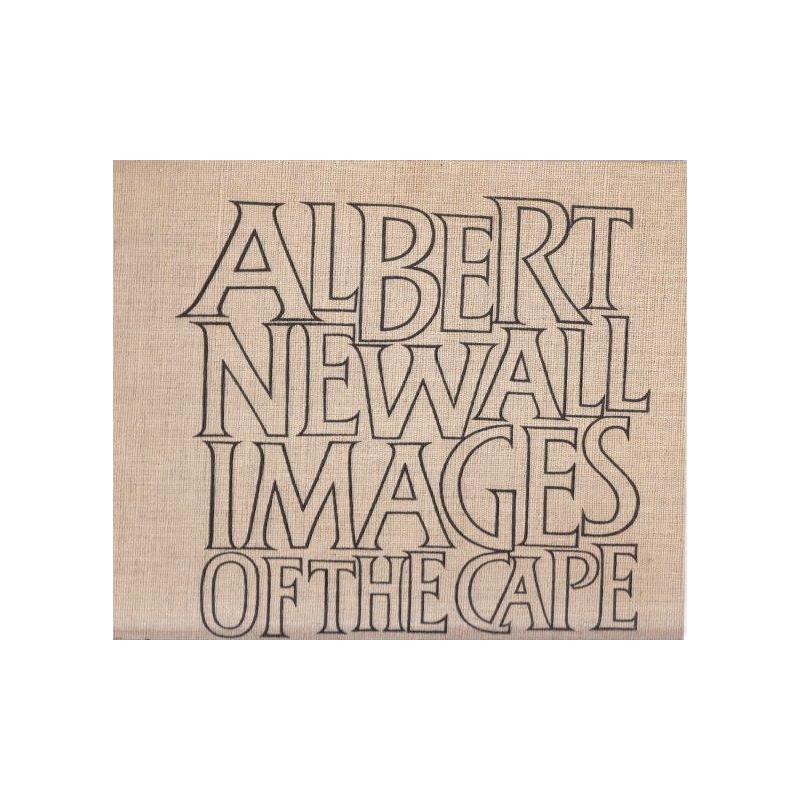Albert Newall was born in 1920 in Manchester in the United Kingdom. Newall enlisted with the Royal Air Force (RAF) in 1937, where he trained and later served as an aerial photographer, until his discharge in 1941 due to ill health. Newall returned to Manchester where he began part-time studies at the Manchester School of Art and worked as a freelance photographer for Temple Press Ltd.
In 1946 Newall immigrated to South Africa, where he eventually settled in Doornfontein, Johannesburg with his young family. He found work as a photographer at F.L Johnson and Co. – a public relations firm that worked in the mining sector – which inspired Newall’s own photographic business, Industrial Photography (Pty) Ltd. In 1953, Newall relocated to Vredehoek in Cape Town and practised as an artist alongside painters Ruth Prowse, Erik Laubscher, and Irma Stern, amongst others. This move precipitated Newall’s move to abstraction and his interest in non-figurative art.

Newall’s first solo exhibition took place in 1949 at the Beaux Arts Gallery Johannesburg, featuring a selection of landscapes in oil and watercolour. Later exhibitions included solo shows at Galerie Vincent in Pretoria in 1951, Whippman’s Gallery in Johannesburg in 1954 and the South African Association of Arts Gallery in Cape Town in 1953, 1957 and 1959.
Newall’s work managed to receive early international recognition. He exhibited at the 28th Venice Biennale in Venice, Italy in 1956 and was included in the São Paulo Biennale in Brazil in 1959. He was also awarded the commission in a highly competitive national competition to produce a public sculpture for the African Life Centre in Cape Town, South Africa in 1960.
Notably, Newall was amongst those who donated pieces to the 1958 auction in aid of the Treason Trial’s Defense Fund – raising money for the legal defence of political prisoners, including the Rivonia 13.
In 1958, Newall re-established his photography business in Cape Town, returning to industrial photography to culminate in a photographic exhibition at the Modern Homes Gallery in Cape Town in 1960. He received a grant from the Cape Tercentenary Foundation to produce a series of images which formed the basis of Images of the Cape, a publication that captured natural and architectural aspects of the region.
